RESOURCE
EQUIPPING CHURCH LEADERS EVENTS & SERVICES
JANUARY – APRIL
MODERN HOME

The new center for discipleship
Building
SPRING
2021 ILLINOIS BAPTIST STATE ASSOCIATION
+
Youth ministry’s #1 goal
for spring outreach
up parents Preaching on marriage
Ideas
Lake Sallateeska and Streator Baptist Camps temporarily shut down last summer due to the COVID-19 pandemic. But in the meantime, both camps welcomed new managers and Illinois volunteers completed renovations of camp buildings and grounds.
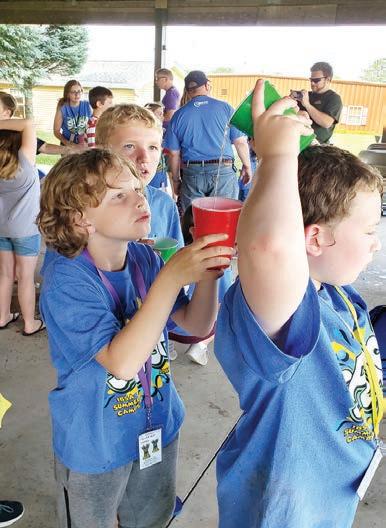



Small group studies
Student events, and more
*Check out the camps on Facebook and Instagram.
Come back to camp!
4867 Baptist Camp Rd., Pinckneyville, IL 62274 (618) 336-5272 1259 N. 1659th Rd., Streator, IL 61364 (815) 992-5947
are ready to welcome you in 2021 Leadership retreats
We
Pastor getaways
INSIDE
Under construction

ILLINOIS BAPTIST STATE ASSOCIATION

EDITOR
Eric Reed
DESIGNER
Kris Kell
SOCIAL MEDIA MANAGER

Lisa Misner
EDITORIAL CONTRIBUTORS
Meredith Flynn
Leah Honnen
Published three times each year, Resource provides new information about IBSA ministries, equipping opportunities, and services. This periodical is sent free of charge to church leaders. To request more copies for your leaders, contact Communications@IBSA.org. Resource is also available online at http://resource. IBSA.org.
For questions about subscriptions, articles, or events, contact the IBSA Communications Team at (217) 391-3119 or e-mail Communications@IBSA.org.
POSTMASTER: Resource is owned and published 3 times each year (Jan., May, and Sept.) by the Illinois Baptist State Association, 3085 Stevenson Drive, Springfield, Illinois 62703-4440.

IBSA.org 01 8 STARTING POINT Help parents prioritize spiritual growth Sarah Bordewick Plus: Shareable tips for family worship. 9 DISCIPLESHIP AT HOME Your family is a ‘small group’ Jack Lucas 12 INTERACTIVE: ASSESSMENT 3 questions to measure family ministry 13 BUILD STRONG MARRIAGES By preaching the basics John Howard 15 GOSPEL OPPORTUNITIES Student ministry’s biggest impact Jimmy Hammond 18 HOSPITALITY It opens doors Eddie Pullen 19 NEIGHBORHOOD OUTREACH Reaching the world starts on the sidewalk Plus: One church’s missions pivot INSIGHT 2 Eric Reed Editor’s note: Your new, crucial partner 6 Aubrey Krol Encouragement for weary leaders 7 Fran Trascritti 4 truths for the new year 32 Meredith Flynn The parents in your pews are leaders in training PLANNER 21 Calendar highlights January through April 23 Interactive Outreach: 5 ways to connect families EQUIPPING 27 Upcoming Training In-person and online
Faith starts at home, and the church plays a vital role. SPRING 2021
LEADER LIFE
Teaching parents to pastor
Read Deuteronomy 6:4-9 and Proverbs 22:6
Moses supposes the parents are listening obediently when he says to make God’s words a regular part of home life and to quote Scripture frequently. And Solomon says to train a child so as to set him on a good path for life, but who’s going to train the parents?
If America is in fact becoming a post-Christian nation, then our immediate world is peopled by spiritual orphans. And these who don’t know how to fish can’t be expected to teach their children to hook a fish. Or a faith.
Discuss: How can we encourage the church-family partnership?
When we have children at church, what are we sending home to educate and equip their parents?
How can we use our church website and social media to urge faith-focused parenting skills?
Your new partner O
nly a few things do I remember clearly about the ministry of Bro. Pope. He gave away a dollar during the children’s sermon once, offering it to anyone who would reach out and accept it. He turned dark water clear another time. He preached often about the imminent return of Jesus, and dramatically about the fall of the house built on shifting sand. Bro. Pope was my pastor— when I was four.
Three years later, when I was seven and we had moved to another town, I told my mother I needed to ask Jesus into my heart—like Bro. Pope used to say. He often cited Revelation 3:20, “Behold, I stand at the door and knock.” For the most important decision of my life, Bro. Pope was my lasting guide, and my family’s partner in my early discipleship. I didn’t know until many years afterward how crucial that was for me.
A friend reminded me that I had baptized him and his son on the same day at our New Orleans church. I claimed a bit of faulty memory, like Paul who didn’t recall who he had baptized, but my friend, now a pastor himself, remembered the details. His son, 15 years after the event, drew vivid pictures of the creaky floorboards in the ancient changing rooms, and the faulty circulating pump in the baptistry that left water on the bottom freezing while steam rose from the surface. He likened it to a crab boil.
I did remember stirring the waters with my leg while reading Romans 5 to the

waiting congregation, and hoping, on more than one occasion, to reach lukewarmness before the baptismal candidate descended the stairs into the pool.
Lukewarm, while sounding unbiblical, would have been an achievement in that rusting old tank.
These scenes come to mind as I consider the partnership between pastors and parents, between churches and families in discipling their children. It happened, back in the day, but I wish someone had articulated the concept and the responsibility to a young minister. Families can’t outsource discipleship; and pastors shouldn’t allow it.
As a student minister, I had good partnerships with Roy and Joy, with Leslie and Melanie, and a few other parents who shared in our ministry to teens. But in many situations where the parents were absent from church life or preferred to “leave it to the professionals,” there were ways we more often could have pursued them as partners.
Sharing disciple making responsibility exposes child and parent to the gospel. And it encourages some level of ongoing spiritual formation in the 167 hours a week when kids aren’t at church. In the new age of biblical illiteracy, in the era when full-time members are only parttime attenders, the pastor-parent partnership is needed more urgently than ever. Charity begins at home, they say. So does faith.
Eric Reed is editor of IBSA media.
02 RESOURCE SPRING 2021
DIRECTORY



Executive
Operations Team



Communications








IBSA IBSA.org 03
391-3108 John
Engagement Coordinator (573) 247-5535
Team Nate Adams Executive Director (217)
Carruthers Church
Jeff
Administrative Director (217) 391-3104 Carole
Administrative Coordinator (217) 391-3113 Drew
Information & Technology Services Director (217) 391-3112 Kendra
Bookkeeper (217) 391-3111 Ashley
Accountant (217) 391-3106
Deasy
Doom
Heironimus
Jackson
Parsons
Illinois Baptist (217) 391-3109
Assistant (217) 391-3127 Kris
Manager (217) 391-3115 Lisa
Social Media & Public Policy Manager (217) 391-3119
(217) 391-3120
391-3107
Team Eric Reed Administrative Director Editor,
Leah Honnen Administrative
Kell Production
Misner
Meredith Flynn Content Manager Managing Editor Illinois Baptist
Barb Troeger Executive Assistant (217)
Mark Emerson Associate Executive Director (217) 391-3136
DIRECTORY

Leadership Development Team
Mobilization Team
Revitalization Team


















IBSA Camps

04 RESOURCE SPRING 2021
Brock Vandever Manager Lake Sallateeska Baptist Camp (618) 318-9424
Carmen Halsey Leadership Development Director (217) 391-3143
Jack Lucas Leadership Development Director (217) 391-3135
Jacob Kimbrough Manager Streator Baptist Camp (815) 992-5947
Tammy Butler Ministry Assistant (217) 391-3124
Tammy Ratsch Ministry Assistant (217) 391-3128
Tim Bailey CP – Catalyst Northeast Region (814) 221-4173
Jorge Melendez CP – Catalyst (630) 710-3106
Eddie Pullen Church Planting Director (217) 391-3146
Ken Wilson CP – Catalyst Central, Southern Regions (618) 697-1036
John Yi CP – Catalyst Northeast Region (312) 608-0349
Kim Ayers Ministry Assistant (217) 391-3101
Scott Foshie Revitalization Director (217) 391-3122
Linda Darden Ministry Assistant (217) 391-3137
Brad Lovin Administrative Director/Missions (217) 391-3131
Kevin Jones Church Planting Director (217) 391-3123
Butch Porter Disaster Relief (618) 499-2215
Aubrey Krol Ministry Assistant (217) 391-3138
Ben Jones Leadership Development Director (217) 391-3140
Fran Trascritti Administrative Director (217) 391-3142
Zone Consultants
IBSA Zones 1-10
To e-mail IBSA staff, type the first and last name (no spaces) @IBSA.org.

Example: LisaMisner@IBSA.org
Local Associations
ANTIOCH (618) 695-2762
BAY CREEK (217) 222-8867
BIG SALINE (618) 841-9064
CENTRAL (217) 330-7593
CHICAGO METRO (773) 278-4400
CLEAR CREEK (618) 833-4481
EAST CENTRAL (217) 586-5599
FOX VALLEY (573) 579-8143
FRANKLIN (618) 439-3742

GATEWAY (618) 254-3953
GOSHEN TRAIL (618) 839-2981
GREATER WABASH (618) 847-3041
HEARTLAND NETWORK (217) 529-3429
KASKASKIA (618) 227-0001
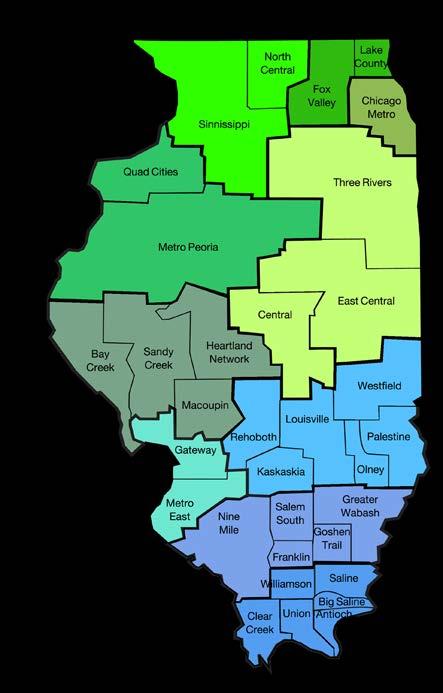
LAKE COUNTY (847) 336-3960
LOUISVILLE (618) 283-0842
MACOUPIN (217) 854-8279


METRO EAST (618) 624-4444
METRO PEORIA (309) 369-1403
NINE MILE (618) 615-9095
NORTH CENTRAL (773) 354-4754
OLNEY (618) 392-7001
PALESTINE (618) 569-3189
QUAD CITIES (309) 221-4143
REHOBOTH (618) 283-0842
SALEM SOUTH (618) 242-7862




SALINE (618) 252-1440
SANDY CREEK (217) 882-2231
SINNISSIPPI (815) 631-4182
THREE RIVERS (815) 725-7361
UNION (618) 524-9738
WEST CENTRAL (309) 351-5499
WESTFIELD (217) 549-8690
WILLIAMSON (618) 993-6069

IBSA.org 05 DIRECTORY
Joe Oliver Zone 2 (847) 754-0356
Brian McWethy Zone 4 (815) 901-2767
Joe Gardner Zone 5 (309) 369-1403
Larry Rhodes Zone 8 (618) 972-5683
Steve Neill Zone 9 (217) 685-9184
1 2 3
7
9 10
Cliff Woodman Zone 6 (618) 946-5720
4 5 6
8
Bryan Price Zone 1 (630) 908-0853
Ashby Tillery Zone 10 (618) 946-9402
Are you weary? Run on.
Stumbling forward keeps you in the race.

We set up a makeshift pulpit in our dining room. With the camera balanced on cardboard boxes and books, my husband preached while I served as executive producer—a role I gained overnight.
Immediately after his sermon, I taught children’s church via video conference from a desk in our bedroom. I also held an open invitation to all the ladies in our church to meet over video conference as a weekly check-in, a way to keep us connected somehow.
For three months, we held church in our home or in the parking lot of the church. For three months, we prayed for strong internet and no rain. For three hard months, we longed to gather in the building with our church family again.
You probably have a similar story. Everything about how we did church changed in March 2020. We immediately pivoted to an online format, something we had not done before. Like me, you may have found it was exhausting and emotionally painful. There were many weeks I didn’t feel like putting together a playlist of worship songs. I didn’t feel like studying for the kids’ lesson. And I definitely didn’t feel like being an executive producer anymore.
But as hard as it was, church leaders across Illinois kept showing up.
The Christian’s call to press on is clear in Hebrews 12:1: “Therefore, since we are surrounded by so great a cloud of witnesses, let us also lay aside every weight, and sin which clings so closely, and let us run with endurance the race that is set before us.”
My husband compares endurance to a person who wakes up every day at 5 a.m. to go to the gym. They’re

half asleep, stumbling around, mentally drained, physically tired, and emotionally spent. But they get on the treadmill anyway, and they start running.
As leaders, it is easy to become weary. We question everything. Are we reaching them, Lord? Are they hearing us? Are they growing? Thankfully, Hebrews 12:2 tells us how we can run our race with endurance: “Looking to Jesus, the founder and perfecter of our faith, who for the joy that was set before him endured the cross, despising the shame, and is seated at the right hand of the throne of God.”
We are the joy that was set before Jesus as he endured the cross, and he is the joy set before us.
Even months after we made those first ministry pivots, our story of endurance isn’t over. We still have days we feel we are thriving, and days we feel like we’re just surviving ministry. On one recent Sunday, our back-up sound booth volunteer was out, and we weren’t able to livestream the service because my husband and I were home too after testing positive for COVID-19.
As difficult as this season is, we know that Jesus is still our hope. He’s still our focus. Leading is hard, and it’s painful, and it’s tiresome. But we can run the race with Jesus as our focus, our inspiration, and our example.
06 RESOURCE SPRING 2021
LEADERSHIP
AUBREY KROL is ministry assistant for IBSA’s Leadership Development Team. AubreyKrol@IBSA.org
Four truths for the new year
The year 2020 will always be a year to remember. We can safely say ministry has been different, and while the struggles were great, the opportunities for the gospel have been all around us.
Now, 2021 is before us. After a year when everything we planned was radically and unexpectedly changed, how do we make plans for the new year? Here are four encouraging truths to consider:
1. Our mission remains. Despite a worldwide pandemic, the Great Commission persists. We are still called to his mission to go into the world to make disciples, baptize, and teach his word (Matt. 28:19). The activity of going out might look a bit different in a socially distant society, but we are still called to it. Whatever our plans and activities are for the year, let’s remember our call to be gospel-centered. This will promote health, growth, and mission in our churches.
2. Our church will stand. By no means will the church fall, and in fact, Jesus says the opposite: “On this rock I will build my church, and the gates of Hades will not overpower it” (Matt. 16:18). Sure, churches might struggle, and some might close their doors, but the bride of Christ will continue to glorify Christ until his return. As we make plans for the church not just to survive but to thrive, we will see that lives are changed, ministry is expanded, and the kingdom is advanced.
Resources I recommend:
Canoeing the Mountains (InterVarsity, 2018)
Tod Bolsinger’s book was written a couple of years ago, yet it’s very relevant for Christians leading during difficult and uncertain times.

3. Our opportunity to share truth is evident. More than ever, subjective truth has taken root in our world, resulting in a society that is more self-centered, less satisfied, and more detached from reality. Jesus said in John 14:6, “I am the way, the truth, and the life. No one comes to the Father except through me.” For the world both then and now, Jesus offers true truth. May we remember that there are opportunities all around to share the truth in love, both to people in the church as well as those in our communities.
4. Our people will always need to grow. No matter how long a person has been a believer, spiritual growth needs to happen. We have an opportunity to plan both a clear pathway for discipleship, as well as a system for developing leaders in the church. Thankfully, through partnership with IBSA, there are many options to accomplish this in the time of COVID. Zone consultants scattered in every part of Illinois can help churches by sharing strategies, ideas, and training opportunities for both in-person events and virtual experiences. Taking advantage of these resources, supplied courtesy of the Cooperative Program, will help equip the saints and grow the leaders within the church.
We don’t know what tomorrow may bring (James 4:14), but we do know the One who holds tomorrow. Our mission remains, our church will stand, our chance to share truth is evident, and our people will always need to grow. Let’s make 2021 plans with these truths in mind, as we seek to reach our communities (and beyond) for Jesus!
FranTrascritti@IBSA.org
IBSA.org 07
PLANNING
We can hold onto these amid our uncertainty
FRAN TRASCRITTI is IBSA’s administrative director of leadership development.
START AT HOME
 Sarah
Sarah
Being a part of a church family is part of growing as a follower of Jesus. But kids spend far more time in their homes. That’s why we want our families to go deeper together.
Discipleship at home is a critical endeavor. God made us for relationship, and those first relationships are in the home. Author Francis Chan says that a child’s view of God will largely be shaped by their view of their parents and their relationships with those parents. If the caretaker is weak, they will view God as weak. If they are distant, unforgiving, and unloving, that is the way they will view God.
That’s a lot of pressure on parents! Which is where we come in as ministry leaders. It’s our job to assist parents
in the discipleship process, and to champion them in their God-given role. This is hard work, but it is vitally important. We should start by putting ourselves in the shoes of busy parents. Many didn’t have discipleship modeled to them growing up. Or they fear having difficult conversations with their children about spiritual matters.
Some have only seen biblical teaching used to control behavior, instead of a way of life. And if a caretaker is not engaging in personal study and reflection on Scripture, we can’t expect them to encourage and engage their children to do so.
The good news is there are solutions to all these issues. So, how do we help parents?
Continued on p. 10
08 RESOURCE SPRING 2021
How to build a framework for discipleship
by
Bordewick
FAMILY DISCIPLES
by Jack Lucas
We’ve seen the numbers comparing the hours children are at church versus the amount of time they’re at home with their parents. It’s clear the overwhelming share of discipleship happens at home, especially during this season of families spending more time there. But if the call to disciple their children leaves parents frantically googling “Sunday school materials” until they throw up their hands in defeat, may I suggest a more holistic approach? What if we inspired parents to think of their families as their small group?
Consider the functions of a small group or Sunday school class. They meet regularly to read the Bible together. They talk about Jesus and how a relationship with him transforms how we live our lives. They pray. And in many cases, they serve the people around them. All of those are things families in your church can do together.
The family worship component is certainly important. Reading the Bible and talking about what it says should be the foundation of all our discipleship efforts. But it doesn’t stop there. Just as families expect churches to have a comprehensive discipleship plan to help them grow in Christ, we can encourage families to do the same at home. Here are the components I suggest:
Devotions/Worship: Read Scripture together, unpacking and applying the passages. The “Foundations” materials from Robby and Kandi Gallaty are a good resource for this element of discipleship.
Prayer: This part was easier when my children were younger, but making prayer a key part of
your family experience may be more difficult as they get older. Consider a method of guided prayer that lets everyone participate. Devotional materials for families may also include prayer prompts.
Service: Depending on the ages of their kids, parents may be limited in how they can serve as a family. But they can start laying the groundwork by talking about spiritual gifts, and how God has equipped his people for the good works he’s prepared. And even in a season of fewer natural opportunities, there are ways to teach service by helping a neighbor with yard work or delivering a gift to someone in need.
As our kids were growing up, service was the component of family discipleship that took the most work and preparation. Eventually, the opportunities were easier to see. We served together at Vacation Bible School every year, for example. That’s an important point to communicate as we promote family discipleship: things will change as kids grow. Our strategy must be adaptable to our changing families.
Parents don’t have to go it alone. Remind them that coaching and mentoring are a valuable part of discipleship. You can help coach them as they disciple their children, and they can bring in trusted voices too. Kids benefit when mature Christians who aren’t their parents are there to speak into their lives.
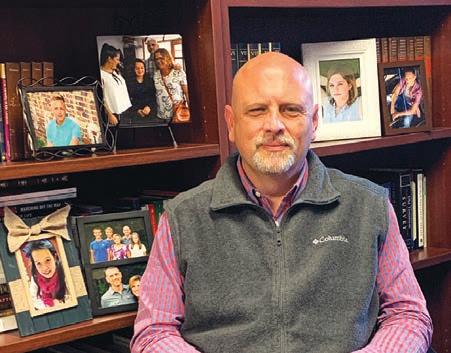
Family discipleship is important. But it’s also possible, and within the grasp of every Christian parent who has a desire to help their kids know and love Christ.
R

My family is a ‘small group’
Stick with family worship
It was a typical evening and our family had just finished dinner. Before the kiddos could run off and play, we stayed around the table to do family worship together. The kids—5, 3, and 1—were wiggly and struggling to pay attention. Next came distractions and silly noises. We even had to hit pause to address some disobedience by our 3-year-old.
I don’t think it’s too big a leap to say your moments of family worship are probably similar to ours, especially if you have young kids. If you are like me, you often feel frustrated and wonder if you’re accomplishing anything during those 10 minutes.
I was greatly encouraged when one of my seminary professors, Don Whitney, shared how there was not one single time he finished family worship and thought, “Wow! I really felt the Holy Spirit move during our time together!” Yet, he faithfully taught his children the things of God year after year.
Years later, during his daughter’s graduation speech, he was surprised to hear a tear-filled, heartfelt “thank you,” as she reflected on the impact those moments of family worship had on her life.
God has sovereignly placed precious little ones in their parents’ homes, and has called parents to teach their children about him (Deut. 6:4-7; Ps. 78:18). As leaders, we can help them stay the course, despite the chaos that so often accompanies family worship. Remind them:
1. We lead our families in worship first and foremost out of love and obedience to our Father. Our children need to see that God deserves to be worshiped.
2. Let’s guard ourselves from letting the chaotic moments distract us from the bigger picture. We have the enormous blessing and responsibility of faithfully sowing the things of God into the hearts of our children through the word, prayer, and song.
3. Parents can’t change the hearts of their children. But God can. His word accomplishes more than we ever could (Heb. 4:12). Faithfully proclaim the things of God and faithfully pray the Spirit would transform their hearts.
– Brady Rueter is a biblical counselor and elder at Delta Church in Springfield.

Continued from p. 8
Prioritize the word
Proverbs 22:6 says, “Train up a child in the way he should go; even when he is old he will not depart from it.” This is not a 100% guarantee that children will not turn from the truth later in life, but discipleship is the best foundation to prevent kids from straying from the truth of Scripture.
Lifeway Research reports that by far the most positive predictor of spiritual health in adults is if they read the Bible as a child. Training up children doesn’t mean creating compliant, rule-following children. We are training them to be followers of Jesus Christ. This happens when they are in the word.
As a church leader, you’re aware of many other resources that can be helpful to parents. But part of the problem is that there are so many available. Unless you are looking for a specific topic or story, it is a challenge to make a decision about which materials to use.
Know what is available and what you trust in terms of family devotionals, age-appropriate Bibles, online videos, blogs, and home curriculum. When I go to a conference or Christian bookstore, I spend a lot of time looking through materials. If I know what’s out there, parents don’t have to trudge through a massive amount of resources.
We’re also in a good position as leaders to provide resources, although we should note this takes time and will affect our budget line. When something is readily available and the caretaker doesn’t have to seek it out, that is one less thing on their plate. It is a gift and a blessing.
One Illinois Baptist leader made it a point at every church he served to put in place times for children and teens to receive specific types of Bibles and books to aid in their development. Giving all your new seventh graders a Teen Study Bible is an expense, but it shows students we believe they are capable of understanding God’s word and studying it on their own.
If I really like a book, I find extra copies wherever I can to be able to give out whenever the situation or conversation calls for it. I often check used bookstores and library book sales for books like “Mere Christianity” by C.S. Lewis or “Don’t Waste Your Life” by John Piper.
10 RESOURCE SPRING 2021
BRADY RUETER
Model the behavior
As ministry leaders, we must be spending time with the Lord and learning from each other, and encouraging parents to do the same. Then, we have to reach in. To know the issues that are keeping families from engaging in discipleship at home, you have to know them. That means spending time and having intentional conversations.
Invite others to see how you disciple at home, or encourage families to share with one another what God has done through their family discipleship. Encourage parents that they are capable, and that they don’t need to have all of the answers. Some days family discipleship time may mean long conversations throughout the day, and others might be just a few minutes.
We know our time is limited at church, but that can compel us to make the most of our weekly interactions. Many churches provide parents with take-home pages about the week’s Sunday school or small group lesson. Even if the curriculum doesn’t come with it, they’re easy to create with the Scripture you studied and a few discussion questions. Our gatherings are also an opportunity to ask kids what God has been teaching them throughout the week. This helps set the expectation that God is always present and moving, not just in the walls of the church.
Discipleship is the most important calling of parenthood. Anything we can do to propel families to know and love Christ more is worth our time and energy.
Sarah Bordewick is director of family ministry at First Baptist Church, Mt. Zion.

Teachable moments
At First Baptist Church in Bethalto, Family Pastor Tim Drury shares these principles for inspiring and encouraging family worship:

Remember the basics: read, pray, and sing. Get God’s word in front of the family every day. He changes hearts, but we place the word before the hearts of our kids. Teach them to pray for their family, school, church, community, nation, and the world. Sing worshipful songs to reinforce the truths of Scripture.

When there’s time, consider some extras, including catechism, Scripture memory, a family prayer journal, and reading other books.
Be consistent. Start small with a goal of 10-15 minutes once a week. Work your way toward more frequent family worship. Choose a time when the whole family is present and focused on the task.
Include the kids in the process. As they grow, encourage children to read Scripture or keep the family prayer journal. As they come to know Christ and mature, invite them to lead.
As a family develops this spiritual discipline, kids will naturally start asking faith questions—some on topic and others that couldn’t be farther from the original subject.
Chase those questions because that is the most important question to the child at that time. As a family practices family worship, they will see this time together grow in duration and spiritual depth.
IBSA.org 11
R
These words that I am giving you today are to be in your heart. Repeat them to your children. Talk about them when you sit in your house and when you walk along the road, when you lie down and when you get up.
– Deuteronomy 6:6-7 (CSB)
TIM DRURY
INTERACTIVE: ASSESSMENT
Family Ministry Report Card
Here are three questions for churches to evaluate existing ministry to families, from IBSA’s leadership development director Ben Jones:
1. Shared Bible stories
Do we offer at least one weekly Bible study option that is aligned across all ages? Some Sunday school curricula, like LifeWay’s Bible Studies for Life, are arranged so that all age groups study a similar Scripture passage every week.
When is our best option for an age-aligned Bible study?
What topics, Bible books, or curriculum resources are we interested in pursuing?
3. Family mission projects
Do we need to recruit any new teachers?
2. Sermon tune-ins
Could we provide a short family devotion based on the Sunday sermon? This could be as simple as reading the main Bible passage together as a family and asking one question in each of these three categories:

Observation
Opinion
Insight
End with a few takeaways centered around what the text means and how it can be applied to families.
Who can create simple devotional content for families?
What opportunities do we have on the calendar for families to serve and engage in missions together?
For families with young children:
For students and parents:
Multi-generational service opportunities:
If we planned a family mission trip, where would we go and what kinds of projects would we plan?
How will we deliver it?
12 RESOURCE SPRING 2021
Preach for stronger marriages
Start with God’s design
by John Howard
Of all people in the world, wouldn’t it make sense that Christians would have the best marriages? And in some situations, that is exactly the case. But after serving in pastoral ministry for 17 years and in several different contexts, I am no longer surprised to find out that so many Christian marriages struggle and suffer because they are not built on the fundamentals for marriage as revealed in God’s word.
I do not think all the blame can be placed on the couples themselves. Yes, at the end of the day, every
couple is primarily responsible for the health and well-being of their own marriage (under the authority of the Father, through Jesus Christ, and by the power of the Holy Spirit). But pastors and churches also share in the responsibility to disciple believers in the area of marriage.
At our church, the most intense “training” for married couples comes through expository preaching in worship services. As I preach and teach through books of the Bible and large sections of Scripture, husbands and wives are taught everything that Jesus commanded (per the

IBSA.org 13
Great Commission). Additionally, as dictated by preaching through the Scriptures, when specific subjects or issues regarding marriage arise from the text, we present focused, Scripture-informed application for couples.
At the most basic level, there are at least two fundamentals that must be preached, taught, and championed by the church over and over with the hope that couples will build godly marriages.
1. Preach the roles of husbands and wives. From the beginning, both men and women have been created in the image of God and enjoyed the same position in God without one trace of inferiority on either side. But Genesis also acknowledges gender differences. Their sameness (in relation to God) does not mean exactness (in relation to one another).
Genesis 2 presents that God created man for the role of leader, and he created the woman for the role of helper. While both man and woman were created with equality, they were also created for different roles within the marriage relationship.
This does not mean for one moment that husbands are ordained by God to rule with an iron fist while wives are to accept helpless suppression. Rather, in the context of one man and one woman wedded together for a lifetime, husbands are to lead their wives and families to glorify God and enjoy him, while wives are to help and support their husbands to this end.
2. Preach the functions of husbands and wives. Ephesians 5:22-23 is the hallmark passage for understanding the functions husbands and wives have in the context of marriage. Verse 22 says, “Wives, submit to your husbands as to the Lord…” Verse 25 says, “Husbands, love your wives, just as Christ loved the church and gave himself for her…” The core functions within biblical marriage state that husbands are to love their wives while wives are to submit to their husbands.
I once attended a wedding during which the officiating pastor described these functions in an enlightening way. The pastor said that perhaps the reason God established love as the core function of a husband in regard to his wife is because love is what she, by nature, craves most. And perhaps the reason God established submission (some Bible translations use the word “respect”) as the core
function of a wife in regard to her husband is because respect is what he, by nature, craves most.
Life experience seems to prove that wives need to be and feel loved, while husbands need to be and feel respected. But often, the very thing one or the other needs is not what he or she receives.
The practicality of how both roles and functions within the marriage relationship manifest themselves requires more study of Scripture, prayer, and empowerment from the Lord. But in preaching and teaching for better marriages, pastors and churches cannot fail to disciple every believer on these fundamentals.

Building marriages through community
At our church, married couples are further discipled through our Sunday school ministry. Not only is Sunday school a great avenue to be discipled through Bible teaching, it also offers an opportunity for husbands and wives to connect with other couples, build meaningful relationships, and even “do life together.”
My goal for our Sunday school program is Biblecentered teaching and an environment for meaningful relationships to form and develop.
While it will look different in each church context, all pastors and church leaders can at least be intentional, consistent, and specific. That is, be intentional about making marriage discipleship a priority, for all ages. Then, be consistent to engage in such discipleship, whether through preaching, teaching, small groups, or programs and events. Finally, be specific by not rolling marriage discipleship into other discipleship areas of focus; let it stand on its own.
Because marriage is a foundational part of life, it ought also to be a foundational discipleship layer in the church.
14 RESOURCE SPRING 2021 R
John Howard is senior pastor of Second Baptist Church in Marion.
BRIDGE BUILDERS Outreach to students can lead parents to Christ
by Jimmy Hammond
Early in my ministry, a young lady from an unchurched family accepted Christ. The family dynamic was unusually complicated by divorce and remarriage. However, after reaching this young lady, she in turn shared the gospel with her biological and step families. As a result, both her father and his new family, along with her mother and her new family, accepted Christ, found reconciliation with one another, and both families began attending and serving in the church together.
This isn’t a special case. Over the years, I’ve been blessed to see many families come to Christ and the church through student ministry that reaches out intentionally to parents. Each story is unique,
but each have one thing in common—connecting with parents was a priority.
We often talk about the need to build strong, multi-generational connections in our churches. One of the most powerful ways to accomplish that is by fostering strong, multi-generational relationships in the families within our churches. Healthy family relationships make healthy families, and healthy families make healthy churches.
We face a challenge, though, when students in our church have parents who are disengaged or uninterested in Jesus or the church. In order for us to have the impact God wants us to have, we must find ways to connect whole families—not just students—to Christ.

IBSA.org 15
FAMILY DISCIPLES
Our urgent challenge
While it is important for parents and students to have a strong connection with Christ at every age, that connection is never more important than during the teenage years. During this final “stretch” of adolescence, students will be making some of the most important decisions of their lives, such as their career and future spouse.
Additionally, these years will often determine the trajectory of the parent-student relationship. Parents who successfully help their students navigate their way from dependence on parents to independence are more likely to have healthy relationships with their adult children than parents who don’t.
Parents are the primary influence in a student’s life. For decades, studies consistently reinforce this truth, even in cases of high familial dysfunction. It only makes sense, then, for student ministry to focus on equipping parents to disciple students as much as it does on the students themselves.
After 20 years of youth ministry, I am heartbroken when I think of the countless students I’ve watched stumble, falter, or walk away from their faith altogether because there was no reinforcement at home. I don’t have to reference a scientific study to tell you the vast majority of students who grow up to be healthy, faithful Christ-followers came from homes where their faith was encouraged. If we are to successfully reach the next generation for Christ, we must make every effort to reach their parents (or parent-figures).
Consider these guiding principles for student ministry aimed at reaching the whole family:
Define your purpose. What we say should be amplified by what we do. In order to reach both students and their families, we have to start with a clear and meaningful purpose for student ministry. Before you recite your mission or vision statement, first look at what you are actually doing as a ministry. Pause and ask yourself, “What would an outsider say our purpose is, judging by our programming, our teaching, our attitudes, and our budget expenditures?”
Once we’ve determined your actual purpose, we can think about what our intended purpose should be. However we decide to articulate or pursue it, the sole purpose of any ministry should center on developing mature followers of Jesus Christ. Figure out how God is calling you to do
that in your context, and then own that purpose by working to align every aspect of your ministry with it.
This is important because in order to connect with the unchurched, de-churched, and unsaved parents in our student ministry, there needs to be a compelling reason for them to make that connection. They need to hear and see that our student ministry is more than a social activity. They need to know we are working to make a positive and meaningful impact on their children’s lives.
Speak their language. Align ministry goals with their parenting goals. Not only must our ministry purpose be compelling, but we must articulate it in a way that is meaningful to the parents we are trying to reach. Imagine telling a parent who isn’t a Christ-follower that your purpose is to develop Christ-like character in their child. At best, they won’t understand what that means; at worst, they’ll think you’re trying to brainwash their child into a cult.
However, if you tell that same parent that your ministry is focused on developing honesty, patience, courage, compassion, self-control, and leadership skills in their child, you’ve now aligned the goals of your ministry with their goals as a parent. You haven’t changed what you’re teaching, you’ve just communicated it in a way that is meaningful to them.
Families are stretched thin, with innumerable activities competing for their time. Aligning our ministry goals with their parenting goals helps move ministry from competitor to collaborator in the raising of their child, which increases our chances to reach them for Christ.
Be their champion. Everybody wins when parents win. At one point or another, every parent feels like a failure. For some parents, that feeling is a constant state of being. There’s no end to the voices and influences feeding the insecurities of a parent, yet there are very few that are encouraging them in a meaningful way. As student ministry leaders, we have an incredible opportunity to position ourselves as their champion.
Be their champion in front of them. Every chance you get, find a way to brag about their kid in front of them. For some students, this may be difficult and require a significant amount of intentionality on your part, but I can’t overstate the power of this simple act of encouragement. Saying something like, “Cody showed incredible patience today at youth group. You must be teaching him well,” lets them know
Continued on p. 17
16 RESOURCE SPRING 2021
Recommended Resources
Storybook Bibles, devos, and music for family worship

BIBLE STORIES
The Jesus Storybook Bible

Sally Lloyd-Jones
Big Picture Interactive Bible
LifeWay Christian Resources
The Biggest Story
Kevin DeYoung
DEVOTIONAL GUIDES
Foundations for Kids
Robbi and Kandi Gallaty
Long Story Short and Old Story New
Marty Machowski
Big Truths for Little Kids
Susan Hunt and Richie Hunt
they’re doing something right amid their doubts and insecurities.
Be their champion behind their back. Inevitably, students are going to complain about their parents. Oftentimes the complaint may be valid because parents sometimes mess up. But unless it’s something that’s truly abusive, hurtful, or illegal, we should do everything we can to paint their parent in a positive light. Give them the benefit of the doubt. Reinforce that their parent loves them, and is doing their best to raise them to be successful in life. Deep down, every kid wants their parent to be a hero—help them to see them as such. Remember, no matter how bad that parent may have messed up, we will never love their child as much as they do.
Be their champion beside them. In addition to equipping students and volunteers, make it a priority to equip parents as well. Conduct a survey about their concerns as a parent, and then host a speaker or seminar on their biggest concerns. (Pro tip: social media is one of them).
FAMILY WORSHIP
One Year of Dinner Table Devotions and Discussion Starters

Nancy Guthrie
Big Truths for Young Hearts
Bruce A. Ware
Family Worship
Donald S. Whitney
MUSIC & VIDEOS
The Bible Project Bibleproject.com
Seeds Family Worship seedsfamilyworship.com
Family Worship Initiative jonathanandemilymartin.com
– Contributed by Sarah Bordewick and Tim Drury
Look through all the books you’ve bought (or gotten as freebies at conferences) and see what might help a parent. Make a list of them and share them as a lending library. Find ways to put tools in their hands, encourage them, and bless them. Involve them in youth and church events and create opportunities for them to do things with their student, not just for them. Help a parent build a healthy relationship with their child, and even the most ardent critic of Christianity will become your supporter.
Jesus leveraged his power, influence, and resources for the good of others. When we leverage our power, influence, and resources for the good of parents, we’re building a bridge between them and Christ.
Jimmy Hammond is family life pastor at Living Faith Baptist Church in Sherman.

IBSA.org 17
R
COME ON OVER
Hospitality opens the door to the gospel
People say visitation doesn’t work anymore. People aren’t open to strangers in their homes. They’re at work until 6 p.m., and the house is messy when they get home. But I’ve found visitation still works, when you do it in reverse.
Take one night, about a year ago. My wife and I hurried to straighten up disheveled book stacks and a few stray papers in our living room. David and Tamara arrived right on time. We enjoyed a wonderful meal while taking advantage of the crisp fall evening under our freshly painted pergola. The conversation was easy, and the friendship began.
Pam and I had invited this sweet couple over to our house because they were new to the region and newly married. I suspected David did not have a relationship with Christ, but he did have questions and was open to spiritual conversations. The evening went well, and subsequent spiritual conversations continue until this day (one year later). I firmly believe David will eventually enter into a relationship with Christ. I am not pressing, just being his friend and gently answering questions about Christianity.
Hospitality has opened many a door to talking about Jesus. But it’s often intimidating. Thankfully, says writer Bonnie Kristian, it doesn’t have to be complicated. “You are the attraction here,” she wrote, “your home is just a setting.”
Here are three reminders as we try to show hospitality for the sake of the gospel:
1. Hospitality expresses trust. The act of inviting guests into your home involves great trust for the host and the guests. Why? Because hospitality is revealing. Existing layers of pretense are peeled away when people come into our homes. But here’s the benefit: Maybe
guests will see something real in our untreated home exchanges which will reveal something beautiful about the One who is at the center of it all.
2. Hospitality expresses love and intimacy, which relieves loneliness. Ours is a culture beset by loneliness as old patterns of communal life unravel. A 2019 study found fully 3-in-10 Millennials say they always or often feel lonely, and a quarter say they have no friends. We need to be in each other’s lives, and one of the easiest ways to do that is to be in each other’s homes.
3. Hospitality reflects the gospel. Author Rosaria Butterfield describes hospitality as a relinquishing, a sacrifice, of what we once had. That sacrifice, she says, unlocks the “hundredfold” of God’s provision described in Mark’s Gospel. And the gospel provides for what has been relinquished.
Remember what Jesus said about sacrifice in Mark 10:29-30: “Truly, I say to you, there is no one who has left house or brothers or sisters or mother or father or children or lands, for my sake and for the gospel, who will not receive a hundredfold now in this time, houses and brothers and sisters and mothers and children and lands, with persecutions, and in the age to come eternal life.”
People are thirsting for community. Why not reveal Christ to someone who needs to see Jesus in action in your home? Invite them over. I bet they’ll come.
 R
EDDIE PULLEN is IBSA’s church planting director. EddiePullen@IBSA.org
R
EDDIE PULLEN is IBSA’s church planting director. EddiePullen@IBSA.org

18 RESOURCE SPRING 2021
WON’T YOU BE THEIR NEIGHBOR?
Community ministry starts on the sidewalk
 by Meredith Flynn
by Meredith Flynn
Before Brad Lovin and his family moved into their home in Springfield, they prayed for dozens of their future neighbors. Using the free service available from BlessEveryHome.com, the family of six received a list of 30-40 homes close to theirs, and used the list to pray that they would have the opportunity to build relationships and eventually, share the gospel.
Several months later, the Lovins are still committed to reaching their diverse neighbors, who represent a variety of religious beliefs and backgrounds. The family prays for their neighbors every Sunday evening. And they’ve started a regular practice of inviting people over for dinner.
“They’ve sat at our table for an hour and a half to two hours, just telling us about their life,” said Lovin, IBSA’s missions director. The outreach is something all families
can do, he said, especially in this season when many are spending more hours at home and extra time out in the neighborhood. Lovin offered these encouragements for families considering a similar ministry to their neighbors:
1. Your family is a ‘universal adapter.’ Think of a local church as a European electrical socket, and a family in your neighborhood as an American power cord. Naturally, they don’t fit, Lovin said. But if a Christian family can serve as a universal adapter, the neighbor could eventually find a fit in the local church, and the family of God.
That’s why the Lovins pray over the meal during dinner with neighbors, and show what it looks like to live out the gospel in a family context. They’re working to establish a rhythm of family worship and invite others into it, Lovin said.
IBSA.org 19
Go to BlessEveryHome.com to connect with neighbors and track progress as you share the gospel.
“What if our family can be the adapter that allows them to eventually plug into the church?”
2. Prioritize table fellowship. Sharing a meal is a great equalizer. The Lovins started their neighborhood outreach by meeting people and praying about opportunities to invite them over. After one woman came over for dinner, she in turn hosted a birthday celebration for the Lovins’ oldest son—with several other families from the neighborhood.
3. Capitalize on seasonal opportunities. Along with dinners with individuals and families, the Lovins try to host a larger gathering every six weeks. Watermelon and ice cream in the summer, s’mores in the fall. Several families have participated, giving the neighbors another opportunity to get to know each other.
4. Engage in consistent, persistent outreach. The process of taking the gospel to a neighborhood is
Bring the mission home
Emmanuel Baptist Church in Sterling has played a major role in IBSA’s Children’s Missions Day for the past several years, hosting projects in their community and encouraging kids to get involved. When the 2020 event was canceled due to COVID-19, children’s ministry leader Ashley Covell got creative. The young missionaries could “earn” their Children’s Missions Day T-shirts already purchased by the church by finding projects to do in and around their homes.
Kids took goodie bags to first responders, helped host Vacation Bible School, cleaned up after summer storms, and found other ways to help right where they are. They took photos of their projects and posted them on the church Facebook page.


Children’s Missions Day is one of the ways Emmanuel is working to reach families in their community, and inspire
based on everyday conversations, Lovin said. Their ministry starts on sidewalks and driveways, and eventually brings people to the dinner table. It’s all about leveraging where you are right now for the gospel, even in challenging circumstances.
“God put you in your community knowing you’d be there when Coronavirus hit,” he said. “So how do you get to know your neighbor?”
He encouraged other families considering a neighborhood ministry to make a similar commitment: What would it look like for you to commit to have neighbors over once a week or every two weeks?
The outreach is consistent with how Christ spent his time, Lovin said. “What I see in the Bible is Jesus having a pattern of using the gift of hospitality to reach people.”
life-long missions commitment. The church, pastored by Chris Nolin, also hosts a monthly, missions-focused kids club.
“We’ve had to try to find new ways to do ministry, so that we’re still reaching those families and the children,” Covell said. The church wants to share the love of Jesus, she said, and the hope he brings. “Especially in times like this right now, people need the hope.”
20 RESOURCE SPRING 2021
R
PLANNER

SPRING 2021
Calendar Highlights
Spring into action with opportunities for outreach.
JANUARY
3 January Bible Study
17 Sanctity of Human Life Sunday
19-20 Illinois Leadership Summit
FEBRUARY
8 Focus on WMU
14 Racial Reconciliation Sunday
27 VBS Training
MARCH
6, 13, 27 VBS Training
7-14 Annie Armstrong Easter Offering and Week of Prayer
12-13 & AWSOM Weekends
19-20
APRIL
4 Easter
11 Baptist Doctrine Sunday
23-24 Priority Women’s Conference
25 Cooperative Program Sunday
Due to ongoing effects from the COVID-19 pandemic, calendar listings are subject to change. Please check IBSA.org.
IBSA.org 21
JANUARY
3 January Bible Study
11 Tax Seminar
Gateway Association
14 Online Tax Seminar
17 Sanctity of Human Life Sunday
19-20 Illinois Leadership Summit
Online and regional satellite locations
PLAN AHEAD FOR BACK TO SCHOOL (again)

This is a great year to treat the January back-to-school season like it’s August. Recruit a team to contact local schools and ask what they need this year:
What supplies can we provide for students?
NOTES:
For teachers?
Who can write encouraging notes to staff?
What spaces in the church building can we offer for remote learning?
Who can mobilize a team to pray for our schools?
Who can start planning now for an end-of-the-year celebration or outreach?
22 RESOURCE SPRING 2021
PLANNER
INTERACTIVE: FAMILY OUTREACH
Build connections with families in your community and in your church:
Mini-golf course

Create a course on your church lawn or in your largest indoor space. few putters for novice golfers to use.
Pen pals
Pair up church families that are worshiping from home for now. Encourage them to swap emails, snail mail, or jump on a weekly Zoom call to stay in touch.

Reverse egg hunt
Egg local yards with at-home hunts this year. Recruit volunteers to pack plastic eggs and send them out to the homes of kids in the children’s ministry. Prep the parents so they can occupy the hunters while you hide the eggs. Include a Bible verse or gospel message in each egg.

Victory gardens
Create a win-win for families staying close to home by providing opportunities to witness God’s intricate design. Create a community garden at church, or teach a virtual gardening class.

Serve safely, and together
Volunteer to clean up abandoned properties. Spring-clean local parks. Choose projects that can be done outdoors or in socially-distanced small groups. Create a list of opportunities and post a sign-up sheet.

IBSA.org 23
FEBRUARY
1 True Love Waits Emphasis
1 Edge Courses – Spring Semester
8 Focus on WMU
14 Racial Reconciliation Sunday
20 Church Technology Conference
IBSA Building, Springfield
27 VBS Training
Chatham Baptist Church, Chatham
Annie Armstrong Easter
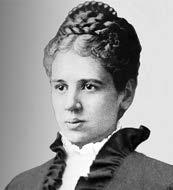
Offering and Week of Prayer for North American Missions
Plan a mini-Annie emphasis on a weeknight using materials from anniearmstrong.com.
Date:
Format: Audience:
Leaders:
NOTES:
PLAN AHEAD FOR
IBSA’s VBS clinics start in February, with training in LifeWay’s “Destination Dig” curriculum for leaders of all age groups. Ask your church’s VBS planning team:
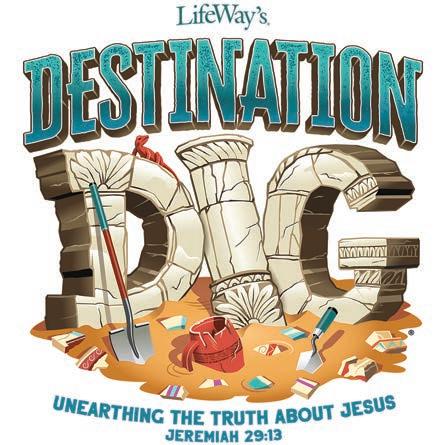
What are our VBS dates for 2021?
What format(s) will we plan? (In-person, virtual, backyard Bible clubs, etc.)
Action steps in our promo plan:

24 RESOURCE SPRING 2021
1. 2. 3. PLANNER
MARCH
Multiple Easter celebrations PLAN AHEAD FOR

Make Resurrection Day worship available to a variety of audiences across multiple platforms:
Egg Hunt Saturday. Combine the annual egg-stravaganza with an outdoor worship service before or after the hunt. Or host several smaller hunts in backyards with a brief devotional.
Sunrise Sunday. Pick a scenic spot in town or on the church grounds. Focus on prayer.
Virtual Worship. Put the lessons learned from 2020 into practice this year. Create resources to call your virtual audience to worship, such as a pre-posted guide for the service or devotionals for Easter week.
Easter Brunch. Consider pre-packaging breakfast sandwiches and fruit cups. Make them available for pick-up on the way in the building, and hold worship around tables.
NOTES:

IBSA.org 25 PLANNER
6 VBS Training Carterville
Youth Week
Annie Armstrong Offering and Week of Prayer 11 iConnect Winter IBSA Building, Springfield
AWSOM Weekend Lake Sallateeska Baptist Camp 13 VBS Training Mt. Vernon 13 VBS Training Dixon
AWSOM Weekend Streator Baptist Camp 20 Missions Leader Boot Camp IBSA Building, Springfield 21 Church Planting Emphasis Sunday 21 Substance Abuse Prevention Sunday 23 Training Night Roland Manor Baptist Church, Peoria 27 VBS Training Chicago 28 Palm Sunday
7
7-14
12-13
19-20
APRIL
4 Easter
8 Training Night Emmanuel Baptist Church, Carlinville
9-10 Disaster Relief Training Carlinville
11 Baptist Doctrine Sunday
18 SBC Seminaries Sunday
23-24 Priority Women’s Conference
Springfield B.O.S. Convention Center
25 Cooperative Program Sunday
29-30 Chaplaincy Conference
IBSA Building, Springfield
NOTES:
PLAN AHEAD FOR Summer groups

What if this summer isn’t a break from the regular rhythms of church life, but an opportunity to offer shorter, focused opportunities to connect with new people?
What topics do we want to cover, or specific books of the Bible?
Who are the leaders?
Who are our audiences? If we offer a group or study for parents, do we have a plan for the kids?
When and where will they meet?
26 RESOURCE SPRING 2021
PLANNER

IBSA.org 27
SPRING 2021 Available online and at regional satellite locations JANUARY 19-20, 2021 For registration information, contact AubreyKrol@IBSA.org ILLINOIS LEADERSHIP SUMMIT IBSA.org/ils2021 Now is the time to prepare for ministry after the pandemic. Hear from national leadership experts and Illinois pastors and practitioners about your church’s next season. Visit the website to learn more.
EQUIPPING
LEADERSHIP DEVELOPMENT
Training Night
3/23 Roland Manor Baptist Church, Peoria
4/8 Emmanuel Baptist Church, Carlinville
Get quality training in discipleship, missions, children and students, worship, and more. Training Night is 6-9 p.m.; training and dinner are provided at no cost.
www.IBSA.org/trainingnight
2/1 Spring Semester begins
Multi-week training courses are instructor led, fully online, and highly interactive. Each class delivers challenging, relevant teaching with a focus on practical application.

www.IBSA.org/ibsa-online-courses
BenJones@IBSA.org | (217) 391-3140
Tax Seminars
1/11 Gateway Association Office
1/14 Online
Get ready for tax season with valuable information for current and retired ministers, treasurers, and other church leaders.
LindaDarden@IBSA.org | (217) 391-3137
VBS Training Clinics
2/27 Chatham Baptist Church
3/6 Carterville
3/13 Mt. Vernon and Dixon
3/27 Chicago
Dig into Vacation Bible School with ideas and inspiration for multiple age groups and focus areas.

Registration is 8 a.m.; clinics are 8:30 a.m. to noon.
www.IBSA.org/kids
JackLucas@IBSA.org | (217) 391-3135
FranTrascritti@IBSA.org | (217) 391-3124
Illinois Leadership Summit
1/19-20 Online and regional satellite locations
Learn with and from fellow Illinois Baptists at a summit focused on how lessons from the COVID-19 pandemic can reshape your ministry for a strong new season.

www.IBSA.org/ils2021
AubreyKrol@IBSA.org | (217) 391-3138
3/11 IBSA Building, Springfield
Learn how IBSA resources can help your church reach your community and participate in God’s mission to the world. Come away with a better understanding of who we are, what we do, and how we are committed to working together.
AubreyKrol@IBSA.org | (217) 391-3138
Church Technology Conference
2/20 IBSA Building, Springfield
Learn how to cultivate an attitude of worship, from the bulletin to the preaching. This is training you won’t find anywhere else, with a focus on using technology for outreach and worship.
BenJones@IBSA.org | (217) 391-3140
28 RESOURCE SPRING 2021
3/12-13 Lake Sallateeska Baptist Camp, Pinckneyville
3/19-20 Streator Baptist Camp, Streator
Learn to study and apply God’s word in a unique retreat setting.
AubreyKrol@IBSA.org | (217) 391-3138
Annual Women’s Conference
4/23-24 Springfield B.O.S. Convention Center
Don’t miss the women’s event of the year! Enjoy a time of spiritual renewal and fellowship, and learn about upcoming missions opportunities and training resources. Return to your church with new ideas for local ministry and outreach.
www.IBSA.org/Priority
AubreyKrol@IBSA.org | (217) 391-3138
Disaster Relief Training
4/9-10 Central Region - Carlinville
Join the third largest disaster relief organization in the U.S.! Introduction to Disaster Relief required for new volunteers is now offered exclusively online at IBSA.org/DR. Training weekends offer chaplaincy course and additional specialty classes.

www.IBSA.org/DR | (217) 391-3126
CISM Chaplaincy Conference
4/29-30 IBSA Building, Springfield
Learn to help people experiencing significantly stressful events. Leave ready to provide immediate psychological and emotional chaplain support in crisis events.
www.IBSA.org/DR | (217) 391-3126
Missions Leader Boot Camp
3/20 IBSA Building, Springfield
Gain tools in team building, administration, and vision toward a strategic missional strategy for your church. Boot Camp will include breakouts on local, regional, and international missions contexts.
www.IBSA.org/Missions | (217) 391-3126
Missions Affinity Network
The International Mission Board reports nearly 285 million people are part of group that is currently unreached and unengaged with the gospel. IBSA’s missions affinity network brings churches together to pray specifically for world regions (see the map above). Sign up to receive monthly prayer guides and requests from around the globe.

IBSA.org/missions-affinity-groups
KimAyers@IBSA.org | (217) 391-3101
Annie Armstrong Easter Offering
3/7-14 Week of Prayer for North American Missions
100% of gifts collected through the Annie Armstrong Easter Offering supports workers sharing the gospel across North America.
www.AnnieArmstrong.com
KimAyers@IBSA.org | (217) 391-3101
IBSA.org 29
LEADERSHIP & MISSIONS
Partnership aids Illinois Baptists in estate planning

Only 29% of U.S. adults have an up-to-date will, and only 7% of those wills include a charitable bequest. That’s why the Illinois Baptist State Association, Baptist Foundation of Illinois, and Baptist Children’s Home and Family Services are partnering with online estate planning service FreeWill.com.
IBSA.org/freewill

At a specially created link Illinois Baptists can explore the estate planning process and link to FreeWill.com to create their own simple will for free. They can also create power of attorney documents. Once the process is finished, users can download and print the documents and have them signed by witnesses.


Go to IBSA.org/freewill to create your own will, or the experts at Baptist Foundation of Illinois can help in person, online, or by phone at (217) 391-3102.
Jon Sedgwick pastors New Hope Baptist Church in Coal Valley. He and his wife, Rhadonda, used FreeWill to update their estate plan. The couple had heard stories about grown children left to answer questions their parents hadn’t answered through a will. They didn’t want their three grown children to be left in the same spot, Rhadonda said.
Plus, the FreeWill process allowed them to benefit IBSA causes through their estate plans, or, as Jon called it, “leaving the gospel in our state.”
Doug Morrow | (217) 391-3102
DougMorrow@BaptistFoundationIL.org
Sheila Jessen | (217) 391-3116
SheilaJessen@BaptistFoundationIL.org

30 RESOURCE SPRING 2021
FINANCIAL SERVICES
The Baptist Foundation of Illinois offers churches professional assistance on financial matters, with the Kingdom in mind. Contact BFI for help with estate planning, building programs, and investments.
GraceHaven clinic aims to save lives
Illinois Baptist Children’s Home and Family Services launched its newest ministry in late 2020. GraceHaven pregnancy resource clinic in Mt. Vernon offers pregnancy testing, parenting classes, and information about adoption and abortion recovery. The clinic also has an ultrasound machine to show parents their baby’s heartbeat.

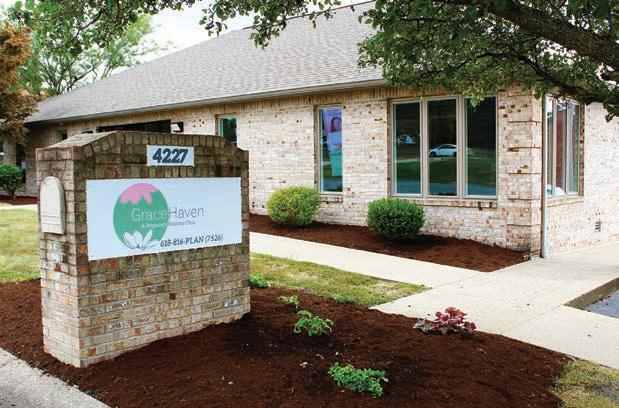
In the clinic’s advocate rooms, clients discuss test results with a GraceHaven staffer or trained volunteer. They’ll also discuss adoption and parenting, and point clients to a variety of classes offered at GraceHaven. And just off the clinic’s lobby is a sunny room full of baby gear, clothes, and books. The Magnolia Boutique is a way to bless expectant parents who earn “magnolia money” by attending parenting classes offered at the clinic. It’s another way to fulfill the mission of equipping and educating everyone who seeks help at GraceHaven.
This is a place where people will be open and receptive to hearing about the hope of Christ, said Sarah Usery, director of operations. “We will be ready for these opportunities.”
Baptist Children’s Home and Family Services


Denny Hydrick, Executive Director 949 County Rd. 1300 N. | Carmi, IL 62821 (618) 382-4164 | BCHFS.com

IBSA camps are ready to serve
Illinois Baptist volunteers were hard at work in 2020 at IBSA’s camps, preparing them to welcome you back to camp this year. Brock Vandever and Jacob Kimbrough joined the IBSA staff as managers of Lake Sallateeska and Streator Baptist Camps, where churches are invited for retreats, leadership gatherings, youth group events, and more. Contact them to schedule your visit.
We look forward to seeing you at camp!
LAKE SALLATEESKA
BAPTIST CAMP
Brock Vandever, Manager (618) 318-9424


STREATOR BAPTIST CAMP
Jacob Kimbrough, Manager (815) 992-5947
IBSA.org 31 SERVICES & FACILITIES
The parents in our pews
We had just welcomed our first child when I saw a television commercial classifying moms into different types. Free-range, lawnmower, tiger—all easy to spot from the ways they raise their children. I’m still intrigued by these lists. I wear my own style as a sort of badge of honor (helicopter, with a tendency to hover).

Our churches have all kinds of parents. But it’s more helpful to identify them in terms of what they bring to the leadership table, and what they may need from us. Here are the parents I see at my church:
Seasoned pros. They’ve been parenting long enough to have seen everything. They have wisdom to spare, and humility earned from carrying children out of the worship center in a hurry. They’re not surprised by the difficulties of parenting, and they are invaluable helpers to new parents. Leaders can serve these pros by appreciating their hard-earned knowledge, and connecting them with ways to minister to younger families.
Rookies. They see parenting intermittently through rose-colored glasses and eyes bleary from lack of sleep. They are desperately tired and overcome by love for their children. Often, they’ve built their families through remarriage, adoption, or foster care. You can make a long list of what they need (meals and childcare chief among them) but let’s not forget what they bring too: renewed reminders of God’s plan for families, the sanctity of life, and outreach opportunities to families outside the church.
In the weeds. The phrase is especially apt for moms and dads raising toddlers. The days are long but the years are short, church leaders often encourage parents of young children. We can help them by providing counsel for the many “firsts” they’re encountering: discipline, social relationships, and choices about childcare or education. Their gift is their time and willingness to engage in worship and community amid the busyness of family life.
Connectors. They know the best library story time and the restaurants where kids eat free. They’re also likely to know families who don’t go to your church, but frequent the same places as many of your members. We can encourage the gifts of these natural evangelists who understand the task of parenting is best worked out in community.
Parents in hard seasons. Their child is in an especially difficult phase. The family has been rocked by unemployment or illness or a child’s bad choices. There are countless reasons parents could be in a hard season, and they may be slow to share painful details. Church leaders can help by checking in more often, or connecting the family with a men’s or women’s ministry leader. When the storm has passed, parents who made it through are a testimony to God’s provision and faithfulness.
Parents need support and counsel as they navigate a highly challenging task. They’re also a picture of God’s love for his own children. Let’s encourage them for his glory.
Meredith Flynn is IBSA’s content manager.
32 RESOURCE SPRING 2021
“Honor your father and mother, which is the first commandment with a promise, so that it may go well with you and that you may have a long life in the land.”
– Ephesians 6:2-3
– Harold the Helicopter from Thomas and Friends
April 25 is Cooperative Program Sunday
Not everyone knows the CP story. Yet.
CP is the most effective and dependable means of funding Illinois, North American, and international missions in history.
Founded in 1925 on the heels of a financial crisis, CP has proven reliable in all kinds of economic times.

The SBC fields more Christian missionaries than any other missions-sending organization in the world.
Most IBSA churches give a percentage of their undesignated offerings for missions through CP.
5. Illinois Baptists give about $6 million annually through CP to share the gospel and grow stronger churches.
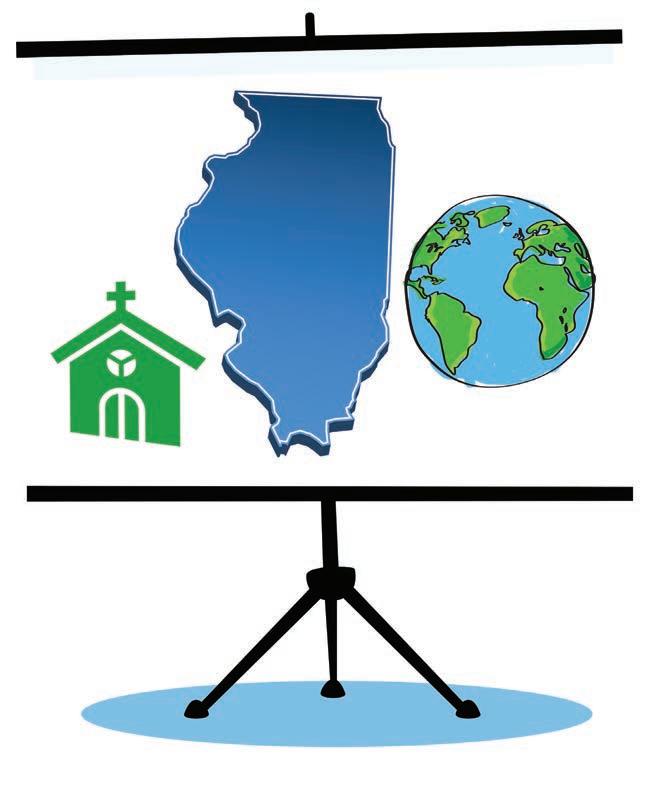
Of gifts given in Illinois, 43.5% is forwarded to national and global SBC causes, while 56.5% stays in the state to start new churches, equip churches for evangelism and missions, and develop the next generation of leaders.
Pray about your church’s commitment to missions through the Cooperative Program. Videos and resources are available at IBSA.org/CP
 1. 2. 3. 4.
6.
1. 2. 3. 4.
6.




Nonprofit Organization U.S. POSTAGE PAID Peoria, Illinois Permit No. 325 Illinois Baptist State Association 3085 Stevenson Drive Springfield, IL 62703 DIRECTORY People who can help in crisis times and ordinary times Starts on page 3 PLANNER Fill in your calendar with innovative ministry Starts on page 21 EQUIPPING Lots of training opportunities online and in person Starts on page 27 God’s Spirit in me BOS Center, Springfield • Register at IBSA.org/women Missie Branch Southeastern Baptist Theological Seminary Betsy Bolick Small Enough Ministries priority • Annual Women’s Conference • april 23-24


























































 Sarah
Sarah














 R
EDDIE PULLEN is IBSA’s church planting director. EddiePullen@IBSA.org
R
EDDIE PULLEN is IBSA’s church planting director. EddiePullen@IBSA.org

 by Meredith Flynn
by Meredith Flynn



































 1. 2. 3. 4.
6.
1. 2. 3. 4.
6.



